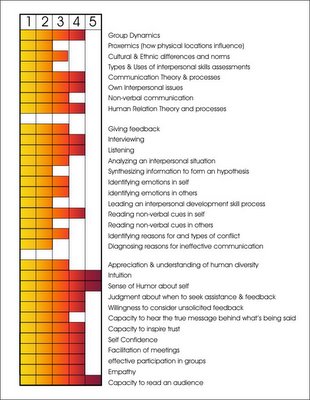 A recent article on MSNBC claims brain scans show that Democrats and Republicans are both adept at making decisions without letting the facts get in the way. While there is probably no single, simple explanation regarding one's resistance to facts, this article offers insights worth considering.
A recent article on MSNBC claims brain scans show that Democrats and Republicans are both adept at making decisions without letting the facts get in the way. While there is probably no single, simple explanation regarding one's resistance to facts, this article offers insights worth considering.From the article: "We did not see any increased activation of the parts of the brain normally engaged during reasoning," said Drew Westen, director of clinical psychology at Emory University. "What we saw instead was a network of emotion circuits lighting up, including circuits hypothesized to be involved in regulating emotion, and circuits known to be involved in resolving conflicts."
The study points to a total lack of reason in political decision-making.
According to Clare Graves' research (graves is the founder of what is now called "Spiral Dynamics"), Individuals show a marked decrease in fear activation at Yellow - possibly coinciding with some rewiring of the limbic system to make it less reactive to what Tier 1 perceives as "threats." Perhaps that is why it is so important to approach Tier 1 levels in ways that don't trigger Fight or Flight. Any chance of being heard by the neocortex - even if it's slim - requires a sense of safety - a sense of being understood. Attack doesn't work very well if the goal is neocortex engagement!*
And, "This goes WAY beyond fight/flight responses to perceived attacks. We are talking about a homeostatic response of the nervous system, attempting to maintain a stable world view." Tom suggests a 12-step program for "Worldview Defense Addiction."**
But there seems to be a deeper issue to be explored if we're truly going to embody a Tier 2 awareness: the difference between "judgement" and "discernment." Tier 1 individuals are clearly involved in making judgements, and politics is a as good a place as any to do that. I am suggesting that Second Tier individuals make "discernments" based on the facts. Let me give you some examples.
If I say to you that I feel President Bush is out to destroy this country, I'm making an "assumption" based on what I believe. An assumption is a judgement (a First Tier analysis) based on my feelings. It may well be that President Bush truly believes he's doing the best thing for the country, and therefore, he may not consciously be out to dismantle the constitution. Another judgement would be that, whether he believes he's damaging the country, or not, he is. It's possible that the actions of this adminstration may actually be good for the country in the long run, as they may ultimately remind us how zealously we have to safeguard our freedoms.
A discernment, on the other hand, is based on facts. An example would be President Bush talking in April of 2004 about how FISA requires warrants to do phone taps***, while all the while he knew the NSA was doing them without the required warrants. It is a fact that, at least that one time, the President lied. Because I have caught the president in a lie to the American people, I can then discern that the President is capable of lying to the people he represents.
Second Tier demands that we make discernments. Second Tier also demands that we speak out when we discern those facts. Not to do so would be terribly post modern. However, even if we speak those facts from love within the language of individuals worldviews, sometimes closed Tier 1 systems are still unwilling to hear those discernments. All Tier 2 can do at that point is is either control toxic expressions or create a stimulus for disassociation from that worldview: not easy!
*Credit for analysis to Cindy Wigglesworth
**Credit for additional analysis to Tom Carey
*** "Secondly, there are such things as roving wiretaps. Now, by the way, any time you hear the United States government talking about wiretap, it requires -- a wiretap requires a court order. Nothing has changed, by the way. When we're talking about chasing down terrorists, we're talking about getting a court order before we do so. It's important for our fellow citizens to understand, when you think Patriot Act, constitutional guarantees are in place when it comes to doing what is necessary to protect our homeland, because we value the Constitution." - President Bush, Buffalo, NY, April 2004







